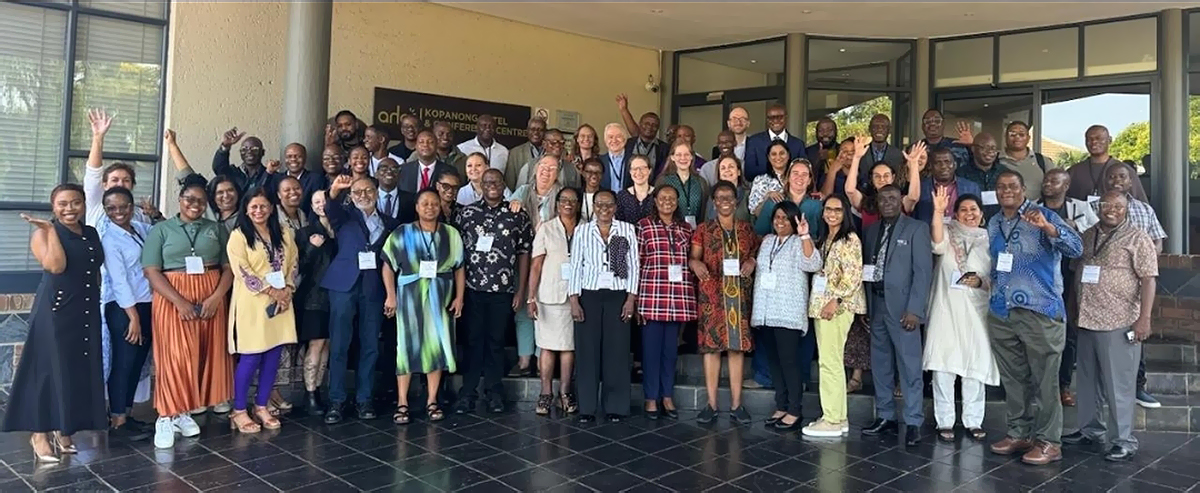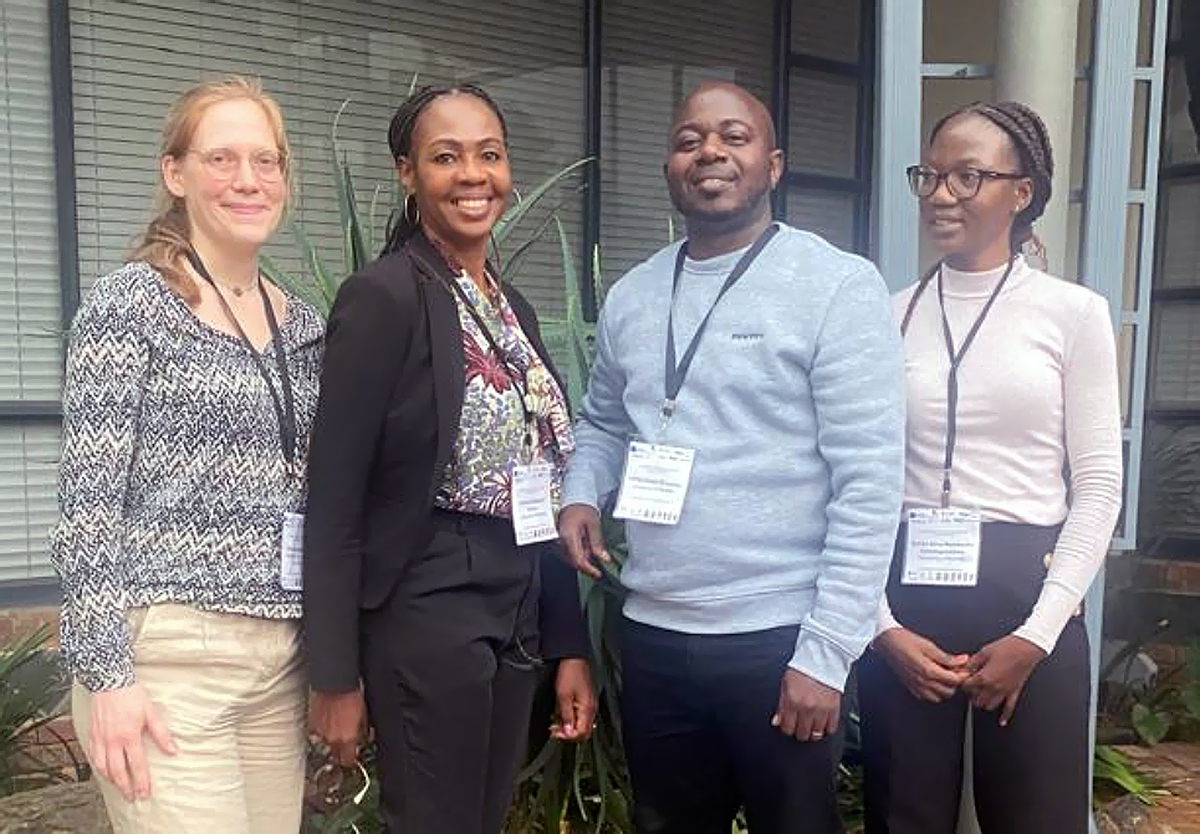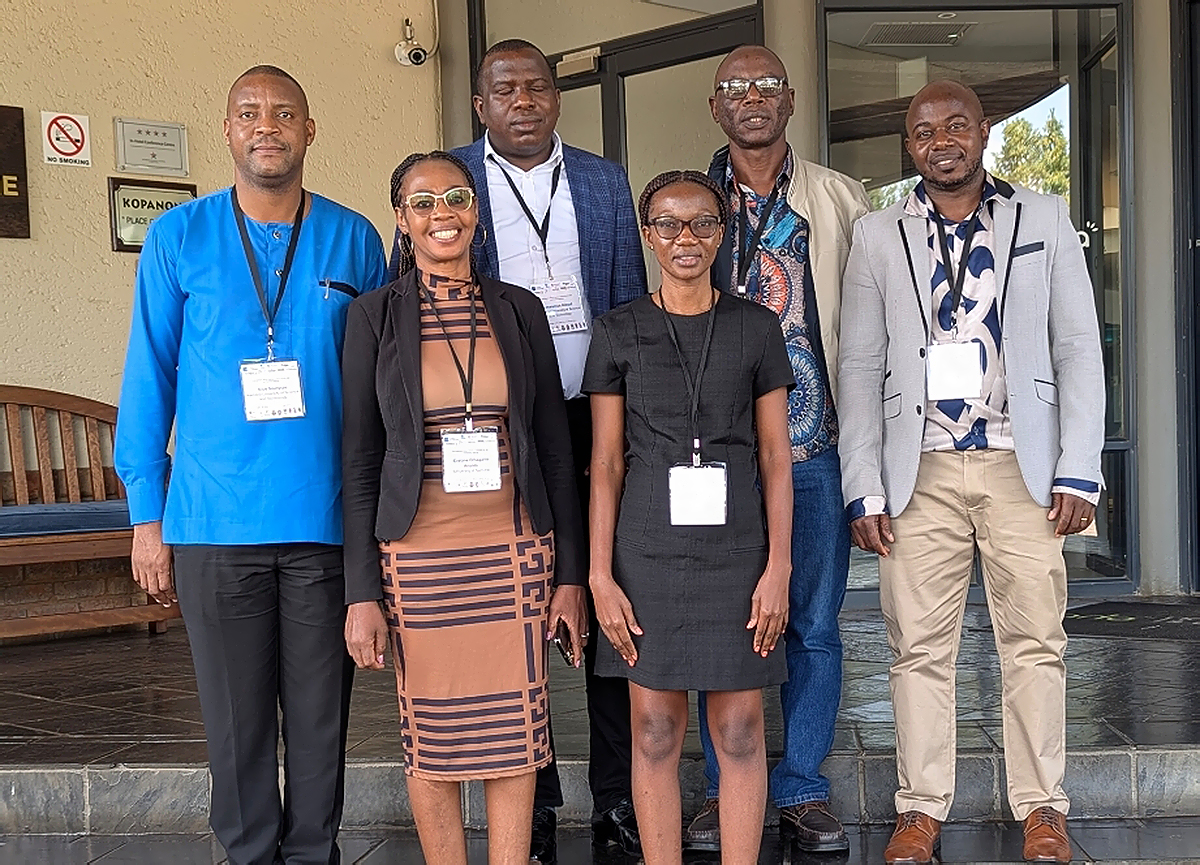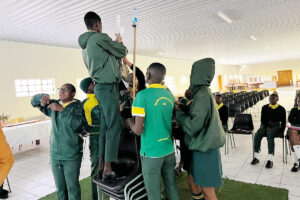In March 2025, the University of Namibia (UNAM), through its School of Education, took a decisive step in shaping teacher education for sustainability by participating in the launch of the Sub-Saharan African Teacher Leadership in Education for Sustainable Development (SSATL-ESD) project. The launch workshop was held at Kopanong Hotel in Johannesburg, South Africa.

Representing UNAM were Dr Sirkka Tshiningayamwe (Khomasdal Campus), Dr Eveline Anyolo (Hifikepunye Pohamba Campus), and Dr Enock Simasiku (Main Campus). The workshop brought together institutions from across Sub-Saharan Africa and Europe, co-organised by the University of the Witwatersrand, Fundisa for Change, Rhodes University, and Leuphana University of Lüneburg.
The SSATL-ESD project is a multi-year collaboration aimed at strengthening teacher education through Education for Sustainable Development (ESD) leadership. Its goals include sharing lessons from past initiatives, building institutional capacity, and establishing a Euro-Africa Teacher Education Network to co-design curriculum innovations and scale ESD practices.
The project is divided into eight work packages, each coordinated by a partner institution. UNAM leads Work Package 5, focusing on the identification and training of ESD trainers and the development of ESD-related policy frameworks.

The initiative is underpinned by the reality that Africa is expected to be home to half of the world’s children by 2050. However, teacher education systems across the region face severe challenges in equipping educators with the necessary skills to address complex sustainable development issues.
A SWOT analysis conducted across 11 partner countries confirmed both the promise of ESD and the leadership gaps in higher education institutions. In response, SSATL-ESD aims to enhance leadership in teacher training institutions in five core countries: Namibia, South Africa, Zambia, Kenya, and Malawi.
The project’s focus includes youth unemployment, green economies, gender inequality, and digital divides. It emphasizes working with both internal stakeholders (students and faculty) and external actors (civil society and industry).

Through this initiative, UNAM reaffirms its commitment to building a generation of educators equipped to respond to Africa’s most pressing development challenges.
“This project is not just a collaboration, it is a call to action for teacher education institutions in Africa to lead the way in transforming societies through education for sustainable development,” said Dr. Enock Simasiku, Senior Lecturer and Head of Applied Educational Sciences.





